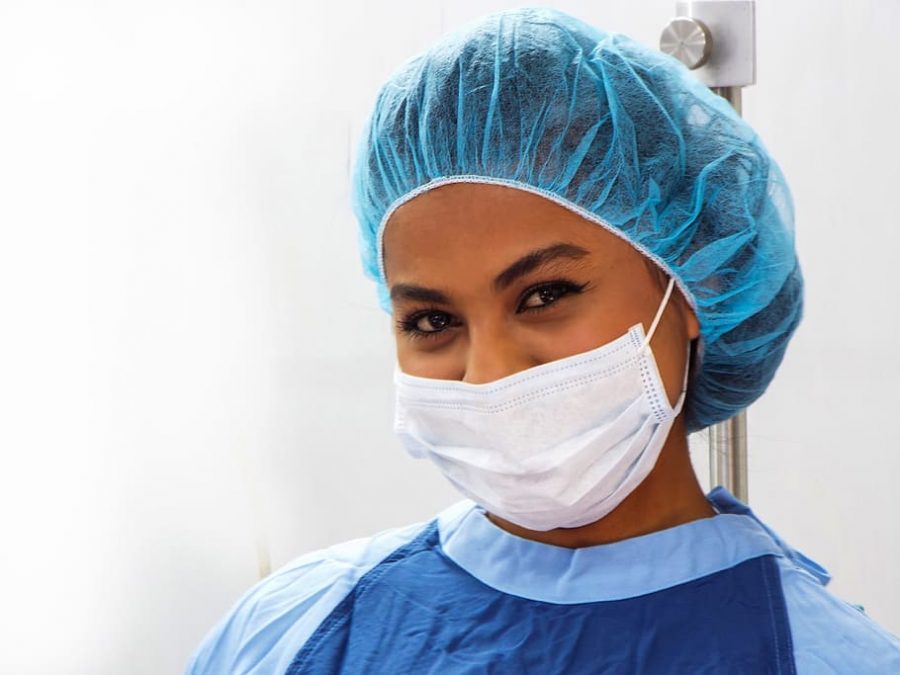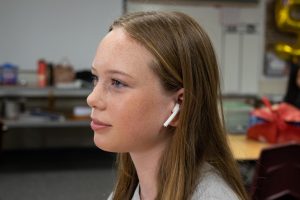Healthcare Workers Are Stepping Up Against the Pandemic
Healthcare workers are still going to work even if they are put at risk, continuing to be there for their communities.
May 6, 2020
The coronavirus has temporarily closed businesses and offices until it is considered reasonably safe to return to public places. But health care officials are still required to go to work, as hospitals are always open. As of May 4th in San Bernardino County alone, there have been 2,182 confirmed cases. On top of daily appointments and regular emergency care, health care professionals have had to change their routines due to our historic circumstances, putting themselves at risk while carrying on with their jobs.
Doctors and nurses are at constant risk in their workplace, as their jobs require close contact with patients. Their occupations don’t often permit the full 6 feet suggested for effective social distancing.
Because health care officials are not able to fulfill social distancing standards, further precautions have to be taken to ensure safety. Working in an environment with proximity to a contagious virus puts nurses and doctors at risk. Every person who steps foot inside a hospital is tested for COVID-19, regardless of symptoms, in an attempt to keep people safe.
“Every patient encounter, whether COVID positive or not, is treated as potential COVID, so PPE is worn. In fact, every patient being admitted to the hospital is tested for COVID, even if the patient does not have any symptoms suggesting COVID,” said frontline doctor David Liu at Kaiser Permanente.
Healthcare workers also wear masks and gloves when inside the hospital. To keep themselves safe, they wipe down everything that might be contaminated.
“I arrive at the hospital and grab sanitizing wipes to wipe down the desk, computer, telephone, and cell phone. I wear goggles and N95 masks,” said David Liu.
Doctors and nurses take many precautions to ensure their safety, but this doesn’t affect their normal workday routine as much as people might think. They still have to check in on patients, and their daily hours didn’t change due to the pandemic.
“I usually get assigned 2-3 patients. Nurses are in charge of various care activities, including but not limited to vital signs check, physical assessments, medication administration, care coordination with other departments for tests or labs, giving blood transfusions if needed, assistance with meals, checking blood sugars, monitoring heart rhythms, rounding with the physicians, and communicating with patients’s families,” said registered nurse Irene Cho at Kaiser Permanente.
Though medical staff are around sick patients constantly, they aren’t the only ones at high risk for the coronavirus. If a doctor or nurse caught the virus, his or her family is at risk of transmission. If health care officials aren’t careful with their surroundings, they may spread the virus and their loved ones could be affected.
“(My family members) were worried and asked me to be careful in the hospital. We discussed the possibility of isolating myself in a separate room in the house or living in a hotel. However, as I practiced careful removal of scrubs and immediately jumping into the shower for a thorough, soapy shower to kill and wash off any virus, we all adjusted to the new routine,” said David Liu.
Despite the dangers they face every day, those who’ve chosen a career in medicine have put a lot of work in to be where they are today.
“Every job comes with pros and cons and risks. If you are equipped with proper training and experience, you should be able to handle the stress that comes from this kind of situation,” said Irene Cho.
Most doctors and nurses are honored to be employed in their profession, even if they are put at risk by something as simple as going to work each day. Their job is very important to the welfare of our community, and their willingness to jeopardize the safety of themselves and their families is greatly appreciated.
“Despite occasional dangers such as COVID and Ebola, health care is still a noble, rewarding, and essential endeavor. I would still do it all over again, and I encourage young people to consider a career in healthcare,” said David Liu.







